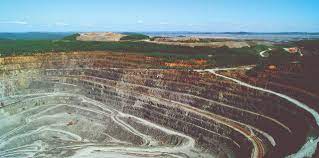EU looks to Greece for niche metals

Athens: Greece could be Europe’s answer to China’s decision to restrict exports of gallium and germanium, rare earth elements used in the manufacture of semiconductors, photovoltaics and optical fibers.
The chairman of Mytilineos Energy & Metals, Evangelos Mytilineos, said the company was contacted by the Commission asking it to explore the possibilities of producing gallium at its aluminium plant in Greece.
“Because we have ready studies and full gallium production capability, with the necessary investments of course, we are in discussions with the European Commission to achieve the best and fastest result,” said Mytilineos, who is also president of Eurometaux, the Pan-European Association of Non-Ferrous Metals Industries.
The development comes after the recent announcement of China’s plans to restrict exports of gallium and germanium.
China provides the EU with 45% of its germanium and 70% of its gallium, and there are few companies outside of China that can produce the high-purity metals needed to make semiconductors, photovoltaics, and fiber-optics. However, it is challenging, to put it mildly, to invest the tens of millions of euros necessary to produce gallium without state assistance to deal with high energy prices and inflation given the dire circumstances in which the European metals industry has found itself in recent years.
“A few months ago the European Commission tabled its proposal for the Critical Raw Materials Directive to help the European mining and minerals and metals processing industries in which it has a deficit and absolute dependence on imports, mainly from China and Russia,” said Mytilineos.
Arriving at the informal Council of Environment and Energy Ministers held on Wednesday in Valladolid, Spain, Environment and Energy Minister Thodoros Skylakakis said that “Greece supports the EU’s initiative for strategic autonomy and can contribute to this effort with the extraction of critical raw materials and rare earths that exist in its subsoil.”





